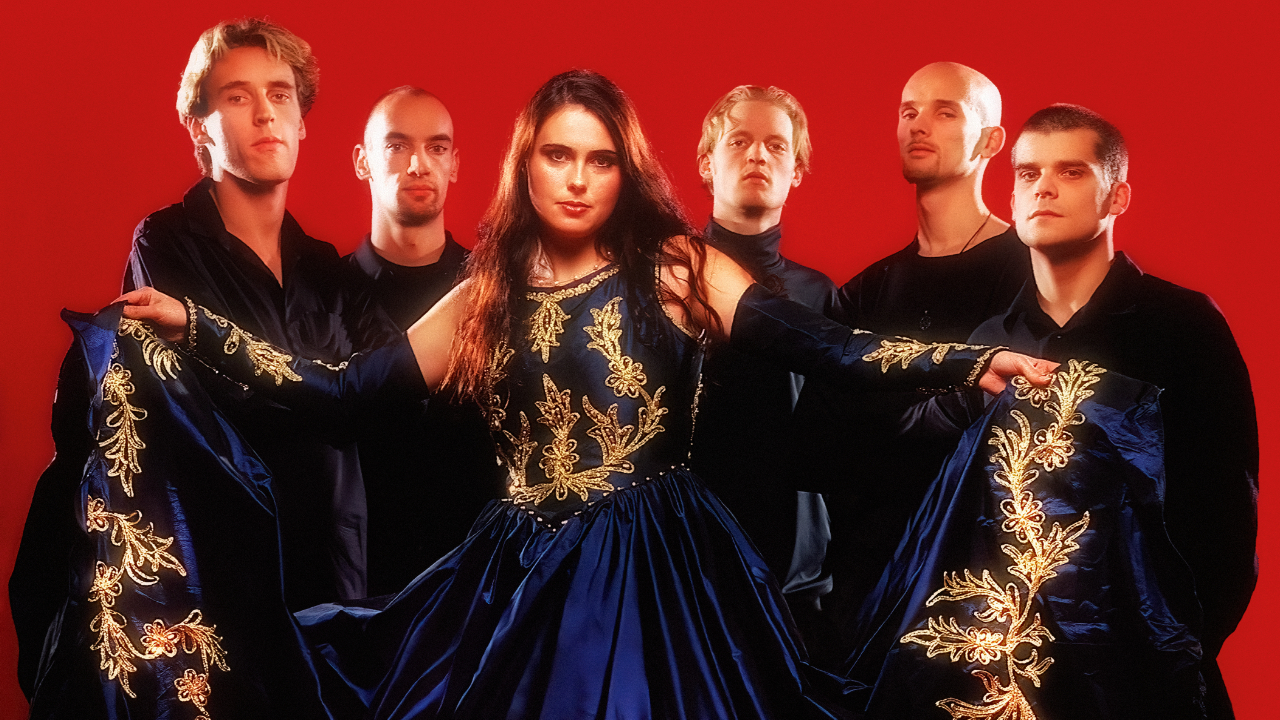"Y'know, I never realised how much I really love my band": Steven Tyler talks American Idol, dysfunctional behaviour, Johnny Depp and the history of Aerosmith
Somehow, Steven Tyler became a bigger star when he stepped away from Aerosmith

As Steven Tyler recovers from a fractured larynx and returns to the road with Aerosmith, we head back to 2011, when he sat down with Classic Rock to tell us about his then-recently released memoir, Does The Noise In My Head Bother You?, and to yarn about American Idol, the band, going solo, not going solo, bad behaviour and more.
Steven Tyler is enjoying a sunny day in California’s Laurel Canyon, taking in the rarefied air “where fuckin’ Janis Joplin hung out and The Byrds with Mr Tambourine Man and Joni Mitchell and the Mamas And The Papas… Do I have to go on? It’s like Bethlehem."
And, of course, he’s talking about… Arthur, the original film and its remake. It kind of goes like that with the Aerosmith frontman, American Idol judge and, now, author – which is where the whole wiggly string of conversation begins.
“Author?” Classic Rock asks the generously lipped rocker. “Author!” Tyler replies. “Author? No, really… Arthur? I hear the new movie sucks. Why remake it? The first one was monumental. It left a scar. It was great. Him on top of the Empire State Building… It was great.”
And we’re off and running. For Tyler, the longest distance between two points is always better. He acknowledges as much in Does The Noise In My Head Bother You?: A Rock’n’Roll Memoir, a 390-page book that boasts a swerving timbre very much akin to an actual Tyler conversation. It’s both engaging and vexing, but pay attention and there’s wisdom, insight, and, of course, that great sense of lip-licking, devil-maycare humour as he recounts the highs and lows of musical achievement, substance abuse and explosive interpersonal dynamics.
Tyler has reason to be ebullient these days. Having survived the dark days of 2009- 10 when Aerosmith were actively trying to replace him, he’s stepped out as an even bigger star – and therefore that much more entrenched – thanks to the American Idol gig, which in turn was a launch pad for the book and Tyler’s first solo single, (It) Feels So Good. And things are in as good order as they ever are with Aerosmith, with the group recording again (for their first album since 2004’s Honkin’ On Bobo), and planning to tour in South America and Japan this winter.
With all that going on, let’s let the man in crow a little bit.
Sign up below to get the latest from Classic Rock, plus exclusive special offers, direct to your inbox!

The world has a new view of Steven Tyler these days. Do you agree?
I do. And I’m very happy about that. Being in a band and with Aerosmith, you’re kind of depicted as Peck’s Bad Boy. They love the bad boy, the bad boys of Boston. Everybody’s intrigued by the badness of it all – and I am, too. That’s why I’m in a rock band! I love the dark, and I love to be the guy walking with Joe Perry in the woods in Sunapee, New Hampshire with our BB guns and wreaking havoc with mother nature, and then taking that to the public and going from town to town and wrecking and pillaging and leaving. It’s like we’re troubadours. We leave a story for the next town to talk about. I think what’s happened with …Idol is that the world sees that other side of me that I don’t show as that ominous ‘rock star’ thing.
The nurturing side?
Right – ‘nurture’ is the key word. I came into Idol thinking, well, y’know, maybe whatever I’ve got to say will work, and we’ll find some kids based on what I thought. But I was scared to death. I thought maybe that wouldn’t work, because what they did before, Simon [Cowell] and that type of company, works so well. So I thought, this may go down. So yeah, I was scared, but then I thought maybe ‘nurture’ and a few other words mixed in with the paint chips… Maybe nurturing could be the new black. Maybe compassion could be the new black instead of black being the new black.
So you don’t buy into the idea that you guys softened the judging criteria on American Idol?
Y’know, you attract more flies with honey than with vinegar. I think it’s good vaudeville to shame someone and put ’em down. The audience loves it. But it’s another thing, if someone’s really trying to be the American Idol and they’re taking it seriously, to give them words of encouragement. I know J-Lo does it very well, and I think it’s because of her street and her children.
And I certainly do it from my family and my kids and from how I grew up and lessons learned. It doesn’t feel good when you’re put down, especially for no uncertain reason. You don’t tell someone you don’t like them because of the song they’re singing, you know? Well, that’s what the other guy did, on several occasions. It’s good TV, I get that. But we took it somewhere else.
In regard to seeing another side of Steven Tyler, you show several other sides in Does The Noise In My Head Bother You? Why a book?
That reminds me of Groucho Marx: “Why a duck?” [laughs]. So why a book? I’ve got so much to talk about and let people know what’s going on and what life has been like for the last 40 years of Aerosmith. And how possibly, pray tell, does someone wind up like you, Steven? If I’ve heard it once I’ve heard it a million times.
So why not a little tip of the hat to what’s going on and my kids and growing up as I did and share with the world pictures of my mother and father? Why not share with the world the way it is and tell them my feelings about my cat and how I played with my kids and how addicted to Christmas time I am and the smell of pine needles and hearing my kids laugh. I don’t think people know that side. They just read about the greasy, grimy gopher guts side of Aerosmith.
What was different about writing the new book from writing Walk This Way: The Autobiography Of Aerosmith in ’97?
Well, the Walk This Way book was very much edited by Tim Collins, the manager at the time. It was kind of the same stories told by five different guys. And I love the book. It’s good. But there are all of the other questions I’ve been asked. Like when the band broke up [in 1979], what really happened? Was it really over spilt milk like it was in Walk This Way [When Joe Perry’s then-wife Elyssa threw a glass of milk on bassist Tom Hamilton’s wife, Terri, backstage at the World Series Of Rock in Cleveland – Ed] or, as I put in my book, was it because it was a bad time for the band in general?
There’s so much that goes on in my world – the guy that writes the lyrics, that guy that has the melody in his head, and where does all that come from? I got a chance to tell a story about my father and about [daughters] Liv and Mia and about [ex-wife] Cyrinda, who passed away, and how integral she was. And David Johansen, bless his heart, how he helped me put the tambourines on my book for Walk This Way and was a good friend… It’s just a different take on everything.
In the new book you seem to really want to explain the nature of things. There are a lot of discourses that are actually quite thoughtful.
Well, thank you for that. I just wanted the world to know how I grew up and what were the situations and the experiences that I went through in my life to be who I am today – how much of a country boy I was, the experiences of dancing with Mother Nature, and just how unexpected so many things in my life were later on. Things in my life were dealt with in two ways, really. One with my father playing the piano and his chords and melodic sensibility of Bach-Brahms-Beethoven and what that mean to me, laid over the other thing, the Italian arguing at the table. That taught me to want to fight for a different melody and put in a little piano lick instead of maybe a guitar lick.
I do see things a different way. And what’s bothered me in life is there’s a lot of people that say: “Oh well, let it be. Leave it alone.” Fortunately or unfortunately, I just can’t leave it alone. But it’s been that way fighting for a band and what it takes to make it, to get a record on the radio and get a label deal and make it be successful. And also it’s part of what it takes to be in a marriage and have children and make it successful too. And no matter what happens, whether it’s the death of my mother or winding up in rehab or getting in an accident or whatever, you try to come out through the wormhole and make it be okay.
Were there any surprises as you were putting stories together for the book?
Y’know, I never realised how much I really love my band. And it’s been a fight between the band lifestyle and the family lifestyle. It’s been a real hard juggle to make all those work, to make a marriage work around touring and albums, finding enough love to give to the band, to give to my songs and finding enough time for love for the children. When you’re sitting down reading them a story at night, it’s important. When I’m putting pen to paper and writing songs it’s important. When I’m spending time with my dad, that’s important. And juggling all those together… it’s been a struggle.
Writing this book made me realise how hard it all was, and why I maybe reached out to substances, for a drink, to make me feel good at the end of the day. I wouldn’t have traded anything. Any one of those things where I thought: “Oh no, I can’t do it,” when I did do it it made me stronger. And then I came out the other end and went: “Jeez, maybe it wasn’t so bad.” It was, but…
There’s love, but there’s animosity too. In the book, you don’t pull many punches about your relationship with Aerosmith.
It’s one of the most dysfunctional bands on the planet, yet we’ve kept together. Why? That’s the question. And my book tells it. I wanted the world to know, yes I fight with Joe Perry, but when we get together in a room we write songs that have greased generations. Walk This Way, Sweet Emotion, Dream On, Jaded… there’s magic there. And I hope the book pushes a few buttons in the band and jump-starts some maybe lying dormant enthusiasm. The funny thing about the band is that when we’re on stage we’re different animals, we’re right back to the same people we were when we were in the studio writing. It’s like the five right keys that opened the lock of what-it-isness.
Your recounting of falling from the stage in 2009 in South Dakota and the aftermath is quite detailed.
I felt bad. I was sitting in rehab thinking that the world thinks I’m a… whatever. Listen, I made no qualms about being a drug addict in the 80s and getting sober and being sober for 12 years. I think the public knows. But I wanted America to know that I didn’t just go off on my own somewhere and buy some street drugs again. There really was a story behind it.
And that would be?
My feet have been my best friend for the last 40 years. I’ve just been a dancing fool on stage, and after a while you just kind of wear them out. So I had Morton’s neuroma and got operations. And it was hard to walk on the scars from the operations and the reconstructive bones in my feet, and I got caught up in the pharmaceutical drugs the doctors gave me. But y’know what? I didn’t tell the world about that.
And I don’t mean to minimise the fact I have an addictive personality and I got in trouble again. I did, and shame on me for that. But the world knows I’m a recovering drug addict and alcoholic. It’s a daily process, and I’ve got to keep my eyes open. I don’t want it to bite me in the ass. I’ve got to be careful. And with the guys, there was a time there when for the sake of tour and money they didn’t come to my side. I needed them the most at that time, and I just wanted to tell the world that sometimes when we need the ones we love the most, they’re just not there, and what that did to me and how that made me feel.
Are they really fucks? Are they really what I said in the book? No. I was talking about a time. They’ve all apologised. They’ve all said they were going through their own stuff, and they’ve told me why and I’ve accepted it. I just accept who they are now, and it’s a little easier to accept the behaviour of a dysfunctional band when I’m sober than when I’m taking drugs for pain management for my feet.

There’s been speculation that the dysfunction is part of what led you to American Idol.
Yeah, some of the magazines say I was teaching the band a lesson. Well, Aerosmith’s too big to teach a lesson anyway. We are what we are, and nothing’s ever gonna dwarf what we’ve done for 40 years. But I took …Idol and I don’t have to walk around on my poor, sore feet… and I get to sit next to J-Lo and Randy [Jackson] and yack it up and then give my two cents. It’s a beautiful thing.
In January you started writing some new Aerosmith songs with Marti Frederiksen. Joe Perry tweets that you’ll be in the studio this summer. How do you expect things to go?
I sent Joe a bunch of songs and he sent me a bunch of licks. We’ve emailed back and forth. All I need is a few good licks. That’s the way Walk This Way was written – one of Joe Perry’s licks, and I grabbed the ball and ran with it. That’s all it takes sometimes. We’re gonna settle a lot of the tumult that’s been going on in the last year between lawyers and managers and… As John Lennon said, time for a new broom to sweep things clean, dahling!
Do things tend to fall into place when the band are together, physically, in the same room?
It does. Sometimes other people try to keep us apart, so it’s a little difficult. I’m with different management, they’re with different management. They’ve got their lawyers, I’ve got my lawyers. When we get together in a room, magic happens. Things get settled. It’s just hard right now. But who knows what this summer will bring. We may go out and do some shows. We’re already booked for November-December, South America and Japan. So who knows, man. But when we do get together, magic happens, without a doubt.
How did your solo single come about?
It’s a song I wrote with Marti Frederiksen about a year ago. He wrote the music and I listened to it and said: “Oh my god, this song needs to get finished.” So I went down by the pool at the Sunset Marquis and I wrote all the lyrics and the melody in about two hours. Sometimes the fastest ones are the best. It’s such a good-time song. I think it’s what America needs right now. It’s like putting the roof down in your car on your way to the beach. I wanted to give it away free with the book, but Sony saw it differently [laughs].
Would you still like to make a solo album?
Oh, sure. And I will. With the single I just wanted to do something on my own that I didn’t have to filter through the band. I wanted to see what I could do with my own songs. God knows Joe Perry did it enough times. And I’ll do more. I’ve just fallen in love with the oboe and a cello. I was fooling around in my studio, and I wrote a song on the oboe and the cello, and my Fender 12-string through a real small Marshall amp. Those three things are killing me right now. They just speak to me.
So who should play Steven Tyler in the movie version of the book?
Oh, probably Johnny Depp. I’ve been hanging out with him lately; we’re planning on writing a song together. He’s got a studio here in LA. He said: “I want you to come over and see if I’m playing Seasons Of Wither right.” I said: “Y’know what, Johnny? No matter how you play it it’s gonna be right. It’s a beautiful thing.”
Does The Noise In My Head Bother You? is published by HarperCollins. This feature originally appeared in Classic Rock 161, published in August 2011.
Gary Graff is an award-winning veteran music journalist based in metro Detroit, writing regularly for Billboard, Ultimate Classic Rock, Media News Group, Music Connection, United Stations Radio Networks and others. Graff’s work has also appeared in Rolling Stone, Guitar World, Classic Rock, Revolver, the San Francisco Chronicle, AARP magazine, the Detroit Jewish News, The Forward and others. Graff has co-written and edited books about Bob Seger, Neil Young and Bruce Springsteen. A professional voter for the Grammy Awards and the Rock & Roll Hall of Fame, Graff co-founded the Detroit Music Awards in 1989 and continues as the organisation’s chief producer.



